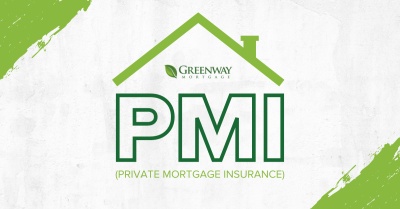
Believe it or not, this ride isn't as scary as it may seem!
The media is talking about escalating home prices, rising mortgage rates and past housing bubbles. Let me tell you what we're seeing from the trenches of home financing. I think you'll like it.
Price growth is slowing.
After a record run of frenetically rising home prices, gains are slowing down. Homeowners still have newfound equity in their homes, and moderated prices can help new buyers.
Mortgage rates remain in the "low" range.
After a couple of years with extraordinarily low mortgage rates, 2022 has seen some increases, yet rates are still well below long-term averages.
While the Federal Reserve Board may continue raising policy rates to cool inflation, mortgage rates have largely reflected the changes already. Even with the increases, home price gains and other advantages can make owning a home better deal than renting.
What does all of this mean for you?
- A lot of existing homeowners are very comfortable right now. They've locked in a low interest rate and are enjoying fixed housing costs. Because of today's strict underwriting guidelines and due diligence, they're confident they have the income and resources to afford their homes.
- For most, their homes have gained significant value. This protects them in case prices fall and provides equity to access for emergencies, home improvements or other expenditures. If you're in this position, I can help you with a home equity loan or line of credit.
- For those still looking to buy, market forces are tilting toward more housing supply (which means less competition), price moderation, and rate stabilization. This combination invites buyers who previously shied away from the frantic market back in the game. If this sounds like you, I may be able to help extend your buying power with a hybrid adjustable rate mortgage that starts with a lower rate and payment.
In all types of markets, the team at Greenway Mortgage remains committed to helping you make the most of your home financing.
Any time we can assist you or someone you know, please reach out!
MarketMinute | The Fed May Raise Policy Rates By How Much?


|
|
|

|
|
|
MarketMinute | Which front door color can add value to a home?


|
|
|

|
|
|
Private Mortgage Insurance What Is It and When Can You Cancel PMI?

If you’ve purchased your home with a down payment lower than 20% of the purchase price, you’re likely paying each month for private mortgage insurance (PMI).
We’ve got all the details on PMI, why you need it, how it’s paid, when you can cancel, and more.
What Exactly is Private Mortgage Insurance?
Private Mortgage Insurance, also called PMI, is a type of insurance you may be required to pay for if you have a conventional loan. PMI protects the lender if you stop making payments on the mortgage loan.
PMI is not to be confused with Homeowner’s Insurance, which is required and protects the physical home and property.
When is Private Mortgage Insurance Required?
PMI is required when a borrower has a conventional loan and makes a down payment of less than 20 percent on the price of the home, they are buying. However, if a borrower puts down more than 20 percent, PMI is not required.
Take into consideration the same thing for a home refinance. If you refinance with a conventional loan and your equity is less than 20 percent of the value of the home, PMI is usually required. Speak with your lender for more information.
How Do You Pay for Private Mortgage Insurance?
In most cases, mortgage lenders will roll PMI into your monthly mortgage payment as a monthly premium. Other times, PMI can be paid for as a one-time up-front premium which is paid at closing. Your loan estimate and closing disclosure documents will specify the amount of your Private Mortgage Insurance.
When Can You Cancel PMI?
The good news is that you will not have to pay private mortgage insurance forever. It can be canceled once your loan-to-value (LTV) falls below 80 percent of the home’s original appraised value. Sometimes this can happen sooner if your home’s value appreciates before then.
How Do I Cancel My PMI?
As we noted above, you may be eligible to cancel your PRMI when your equity reaches 20 percent. Your Private Mortgage Insurance will fall off automatically once you reach 22 percent equity. However, if you’re at 80 percent equity, want to be proactive, and save some money, you can reach out to your mortgage lender and request that they cancel your PMI. Your lender will advise on the necessary steps to take to cancel PMI.
If you’re not quite at 80 percent equity in your home, continue to make your mortgage payments on time each month.
Mortgage Tip: Have extra cash for a month? If so, put that money toward your principal to build your equity even faster. Be sure to make a note to your lender that you want the extra payment to go towards your principal balance and not your next mortgage payment. This can easily get confused or overlooked otherwise.
Is The Time Up on Your PMI? It’s Time to Find Out!
Use our PMI Removal Calculator to find out if you’re eligible to drop PMI and, if not, how much further you may need to go before you get to that point.
If you have any questions along the way about canceling PMI or home financing in general, please reach out. We are happy to help.


|
|
|

|
|
|


.png)


.jpg)
.png)